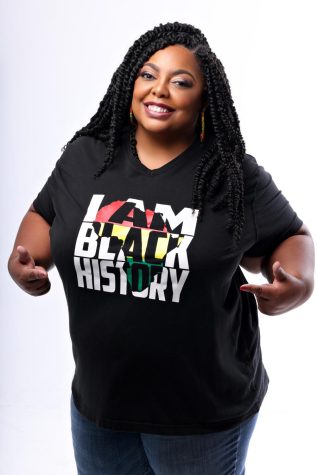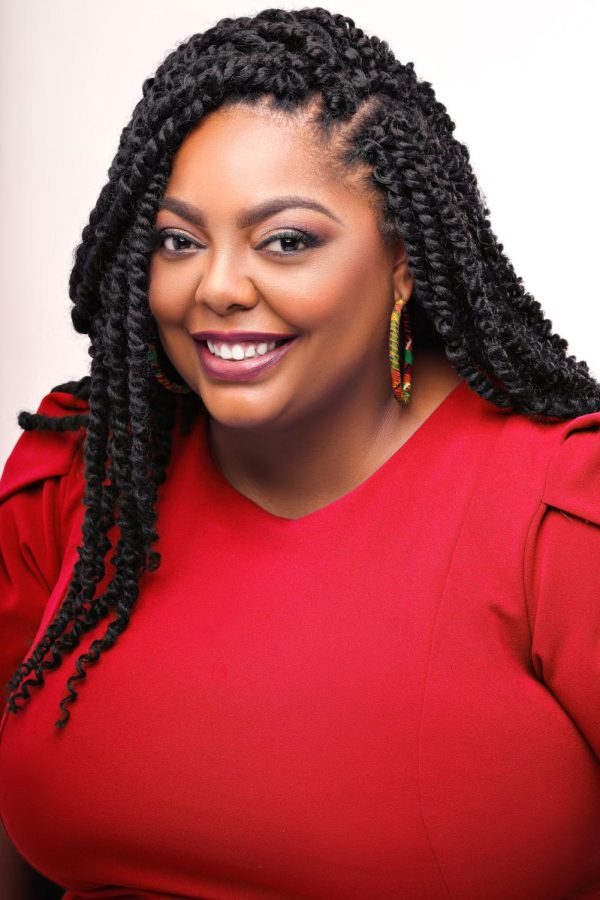Q&A: Kristin McGuire
How Young Invincibles is tackling COVID-19 disinformation among the youth
September 20, 2021
Kristin McGuire is the new executive director of Young Invincibles, a policy and advocacy non-profit organization dedicated to young adults. Founded in 2009 by a group of students that felt that the younger generations’ voices were not being heard in the debate over health care reform, YI now serves young adults across the issue areas of health care, higher education, workforce, finance and civic engagement.
As the pandemic worsened, it was clear to YI that their role was to ensure that young adults had accurate and reliable information about prevention, transmission and protection against the spread of the COVID-19 virus. Under McGuire’s leadership, they have hosted vaccine clinics, education workshops and most recently unveiled a mural in Long Beach. On Sept. 7 , YI staff member and CSUN alumna Chynna Lloyd co-presented with former President Barack Obama about COVID-19 vaccination outreach to young adults.
The Sundial got a chance to talk to McGuire about her initiatives as we cope with the new normal.

Q: What is one of the biggest challenges you have faced while attempting to spread knowledge about COVID-19 to young people?
A: Our COVID work started in Los Angeles County. I directed it in my former role of Western region director. Quite simply, the biggest challenge has been the pandemic itself. Until recently, we have not been able to actually go outside and speak to people. So much of the work was digital.
Also, another huge challenge has been, you know, there’s a pretty large misinformation campaign going on in our country right now. And so a large portion of our work is really having to do a lot of myth-busting. And we have to build trust with young adults so they actually believe what we are saying or posting instead of something else they’ve seen.
I think it’s really important for an organization that was founded on healthcare advocacy that we engage in this pandemic, to make sure that we educate the young people who have been our base this whole time. This is hopefully a once-in-a-lifetime crisis that we’re facing. So I think now more than ever, Young Invincibles has to step up to make sure that young people are educated and informed about what’s going on right now.
That means dispelling a lot of these untruths that folks are spreading around. And we have to do that because we know that there are COVID prevention measures and safe vaccination measures that can help us get on the other side of this safely, well, and alive. So we’ve focused since March 2020 on making sure that young people understand COVID and understand how to prevent or protect themselves against COVID. And also know how to survive this other crisis. They are a threat to the economic security of young adults that was caused by this pandemic.
So in all of our state offices, we also had to revamp our policy agendas to make sure that young people and college students were still able to thrive. While we’re going through this pandemic, young people have also endured job loss, school closures and subsequent housing loss, displacement due to dorm closings, loss of social life and mental health challenges while we had the [lockdown]. Young people have endured a lot. Our policy agendas reflect this and have shifted to work on policies that improve basic needs supports for students, housing supports and mental health care for young people as well.
Q: What strategies does YI use to articulate these fears to unvaccinated young people, especially young people of color?
A: The first thing to keep in mind is we’re not judgmental. So we understand everybody’s not coming to the table with the same level of trust. We have to listen to folks, listen to their concerns and not debate with people, but just provide accurate positive information in a non-demeaning manner.
Historically, communities of color have had a difficult relationship with health care, science and research. That is a fact. As a Black woman, I acknowledge that as a fact. It is true for myself and members of my family. We also know that there are some instances where science has saved our lives, right? There have been medical advancements that have literally saved the lives of many of us.
And so we have to make sure that we talk to people about acknowledging that hard truth: that we have been failed multiple times by these systems that have also made advancements that have been beneficial to us. Then, we also have to acknowledge that this is a different situation. And sometimes it’s a tough situation. And it’s a tough conversation. But we have to just continue to try, you know, and talk to folks and get them to understand and get them to participate in these prevention and vaccination efforts. But the most important thing is to not argue or not debate and to really talk to people from a place of understanding.
